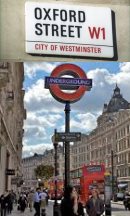
|
Sei qui:
Grammatica Inglese >
Verbo essere
Verbo essere inglese (to be)
Il
verbo essere è un verbo
chiave in
inglese, giocando
un ruolo importante in molti
tipi di costruzioni,
come in tutte le altre
lingue europee (etre in
francese, in tedesco
sein, ser / estar
in spagnolo). Il verbo essere
ha molti usi e
significati, sia come
verbo principale sia come verbo
ausiliare. Esso agisce anche
in modo diverso in frasi
negative e nelle domande.
|
Infinitive
(Infinito) |
be |
|
Present
Participle (Participio presente): |
being |
|
Past
participle (Participio passato): |
been |
Present
Simple (Presente semplice) Tra parentesi ( ) la forma
contratta.
|
Forma Affermativa |
Negativa |
Interrogativa |
Interrogativa/Negativa |
|
I am (I'm) |
I am not (I'm) |
Am I? |
Am I not? (Aren't I?) |
|
You are (You're) |
You are not (Aren't) |
Are you? |
Are you not? (Aren't you?) |
|
He is (He's) |
He is not (Isn't) |
Is he? |
Is he not? (Isn't he?) |
|
She is (She's) |
She is not (Isn't) |
Is she? |
Is she not? (Isn't she?) |
|
It is (It's) |
It is not (Isn't) |
Is it? |
Is it not? (Isn't it?) |
|
We are (We're) |
We are not (Aren't) |
Are we? |
Are we not? (Aren't we?) |
|
You are (You're) |
You are not (Aren't) |
Are you? |
Are you not? (Aren't you?) |
|
They are (They're) |
They are not (Aren't) |
Are they? |
Are they not? (Aren't they?) |
Esempi: A) forma
competa B) forma contratta
C) Forma completa
negativa d) Forma contratta negativa
|
A) |
I |
am |
a student. |
|
He |
is |
a teacher. |
|
She |
is |
a journalist. |
|
It |
is |
a book. |
|
We |
are |
mechanics. |
|
You |
are |
pilots. |
|
They |
are |
policemen. |
|
B) |
I |
'm |
a student. |
|
He |
's |
a teacher. |
|
She |
's |
a journalist. |
|
It |
's |
a book. |
|
We |
're |
mechanics. |
|
You |
're |
pilots. |
|
They |
're |
policemen. |
|
D) |
I |
am not |
a student. |
|
He |
is not |
a teacher. |
|
She |
is not |
a journalist. |
|
It |
is not |
a book. |
|
We |
are not |
mechanics. |
|
You |
are not |
pilots. |
|
They |
are not |
policemen. |
|
E) |
I |
'm not |
a student. |
|
He |
isn't |
a teacher. |
|
She |
isn't |
a journalist. |
|
It |
isn't |
a book. |
|
We |
aren't |
mechanics. |
|
You |
aren't |
pilots. |
|
They |
aren't |
policemen. |
Da present
simle a past simple
>>>>>>>>>>>>>>
|
Present Simple
Tense
|
Past Simple
Tense
|
|
I
am
He, She, It
is
We, You, They
are
|
I, He, She, It
was
We, You, They
were
|
Come
verbo principale
in una frase, il verbo essere (to be) è
un verbo stativo
(un verbo
che collega il soggetto
con il suo complemento).
To be è
anche parte di molti verbi comunemente usati, come i seguenti:
to
be afraid, to be aware of, to be happy, to be
derived from (avere paura, essere a conoscenzam di, essere
felici, essere derivato da)
|